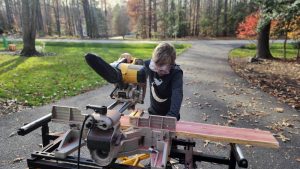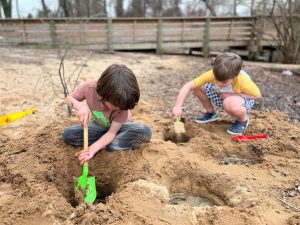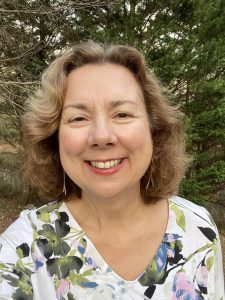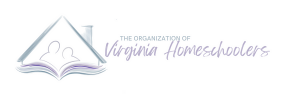Homeschooling is Not School: A guest blog by Jeanne Faulconer
Homeschooling is Not School.
No matter how you decide to approach homeschooling, you can benefit from embracing this idea.
Our (twenty!) years of homeschooling were at their best when I focused on learning and relationships, not on the accouterments of school.
It didn’t matter what “grade level” my kids were on as long as they were learning the next right thing for them and as long as I was committed to supporting their learning.
It didn’t matter if we never did spelling lists and tests. My kids became great spellers from something we were doing—probably just all that reading and talking about word etymologies.

It didn’t matter if we didn’t use a curriculum or if we used a curriculum as “a resource” and didn’t follow it lockstep. Focusing on what engaged my kids was far more effective in creating actual learning than focusing on “getting through” a curriculum that didn’t engage them but that “covers all the bases.”
I didn’t need to give grades (until high school, where I did so for transcripts).
They didn’t need tests to demonstrate their knowledge. I just, you know, talked to them.
They didn’t need a strict schedule, but they benefited from a fairly organized household and a predictable routine.
I didn’t need to spend six hours a day or start at 8 am doing formal lessons.
I didn’t need to limit “recess.” My kids played outside HOURS a day, every day.
I didn’t need to use rewards or punishments to elicit authentic learning.
My kids didn’t need to sit at a school desk to read, write, calculate, or think. I found them under the table, flopped on the couch, sprawled across their bed, and knee deep in Lego bricks on the floor—with an audiobook going in the background.
They didn’t need school to be “socialized.” In addition to having neighborhood friends and friends from scouts, sports, music, homeschool groups — our kids were “socialized” by being out and about in the community with us, doing errands, volunteering, working part-time jobs as teens, talking to people of all ages and backgrounds.

I already took my kids out of school where “standards” were supposed to help but where “standards” created problems for my kids instead. I didn’t need my homeschooling to follow anyone else’s “standards,” even those of other homeschoolers.
Ideas and support from other homeschoolers? Yes. So valuable!
Their way of homeschooling as our way of homeschooling? Nope, nope, nope. Doesn’t need to be. Or it can be, in this way and that way but maybe not that other way.
Whatever works!
In other words, if spelling lists work for you and your kids, have at ‘em—but not arbitrarily, and not just because School uses them. Not because you had spelling lists when you were a kid. Choose to use spelling lists—or a particular math curriculum or a particular homeschool approach or a particular brand of pencils—because they work for you and your kids.
Will this result in some trial and error? It will. Just as you cannot absolutely plan for and predict many of the twists and turns that come with raising children, you will encounter twists and turns in homeschooling.
But homeschooling is nimble. Make the changes. Tweak the resources. Try a different time of day. Try a different curriculum or a different approach. Sometimes good luck comes from not staying stuck.
Sometimes good homeschooling comes from not following the usual school rules!
A corollary to “Homeschooling is Not School” is this statement:
“My homeschooling does not have to be like anyone else’s homeschooling.”

Jeanne Faulconer and her husband homeschooled their kids for 20 years in three states. Along the way, Jeanne organized co-ops, wrote and edited for homeschooling magazines, and worked as a homeschool advocate and conference speaker. She is the former director of Brave Writer’s 14,000-strong membership community, Brave Learner Home. Her writing and homeschool advice is featured at TheHomeSchoolMom.com. Jeanne is a former board member of VaHomeschoolers and was named to the VaHomeschoolers Legacy Circle. A homeschool evaluator for many years (now retired from that service), she has provided annual evidence of progress letters for hundreds of families in Virginia.
Opinions expressed by individual writers in this blog do not necessarily reflect the views of the Board of Directors of The Organization of Virginia Homeschoolers, nor do they represent an official position of VaHomeschoolers. Writers’ views are their own, and readers are encouraged to research and explore homeschooling issues to their own satisfaction.
